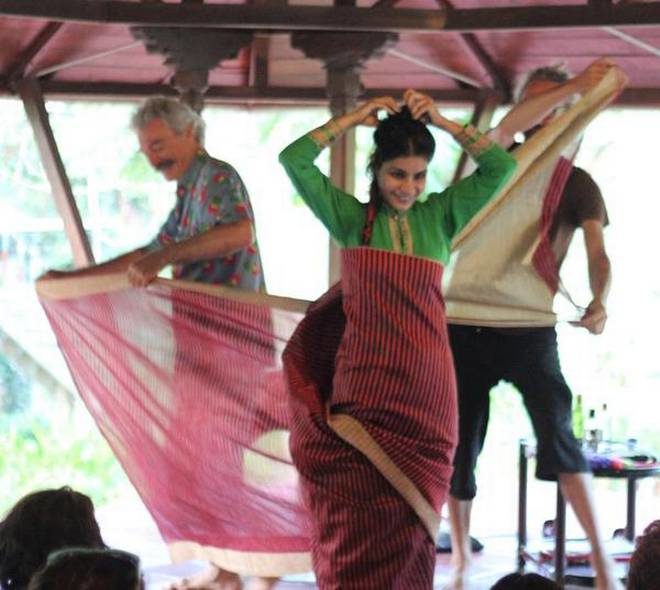Puducherry-based theatre artiste Savita Rani is back with an evolved version of Restlessness in Pieces.
Can we not rest in peace, while still alive? Is restlessness that inherent a trait of the living? Savita Rani, a young National School of Drama graduate, began exploring this question through a one-woman play titled Restlessness In Pieces or RIP, in 2015. Now, having traveled to Thrissur, Calicut, Bengaluru, Delhi, Chennai, and elsewhere, her act has touched myriad audiences, interacted and learned from them, and evolved in the process. What it continues to do, however, is exploring how a patriarchal system binds a woman.
“The play is an inquiry into the Ramayana through Sita’s eyes, though I don’t name her or anyone in it directly,” says Rani. “Within that theme, I also portray what I feel about the social situation today,” Rani explains. “I imagine her as a woman of today. I think she could be a writer: just a human being who loves to travel and write.” Though the play explores serious concepts, it does so with humor.
The play was first staged in Puducherry in 2015, after a writing process that took three years. It was written in multiple phases. “I would have some text written down, then a few performance ideas, some of which originally had nothing to do with this play. Eventually, it all came together.”
One such performance piece is about the various objects that a woman uses in her day-to-day life. It deals with articles of makeup and those of culture and symbolism, such as sindoor. “When I wrote that performance piece, I didn’t have Restlessness In Pieces in mind at all,” says Rani.
Her own thought process isn’t the only thing that shaped the play over the years. As an interactive act, it was molded significantly by audience response as well, which is why the play, which had originally been a 20-minute piece, now stretches to 50-55 minutes. “When I first staged this play, I didn’t involve the audience. It was a bit difficult to add that in because I couldn’t practice audience participation while rehearsing by myself. But it has certainly helped shape the play,” says Rani.
She explains how, earlier, her audience would assume that the play is just about women. “Now, I know how to portray that it is about so much more. It is about our everyday relationships, our everyday lives.”
This post was written by the author in their personal capacity.The opinions expressed in this article are the author’s own and do not reflect the view of The Theatre Times, their staff or collaborators.
This post was written by Meghna Majumdar.
The views expressed here belong to the author and do not necessarily reflect our views and opinions.


















